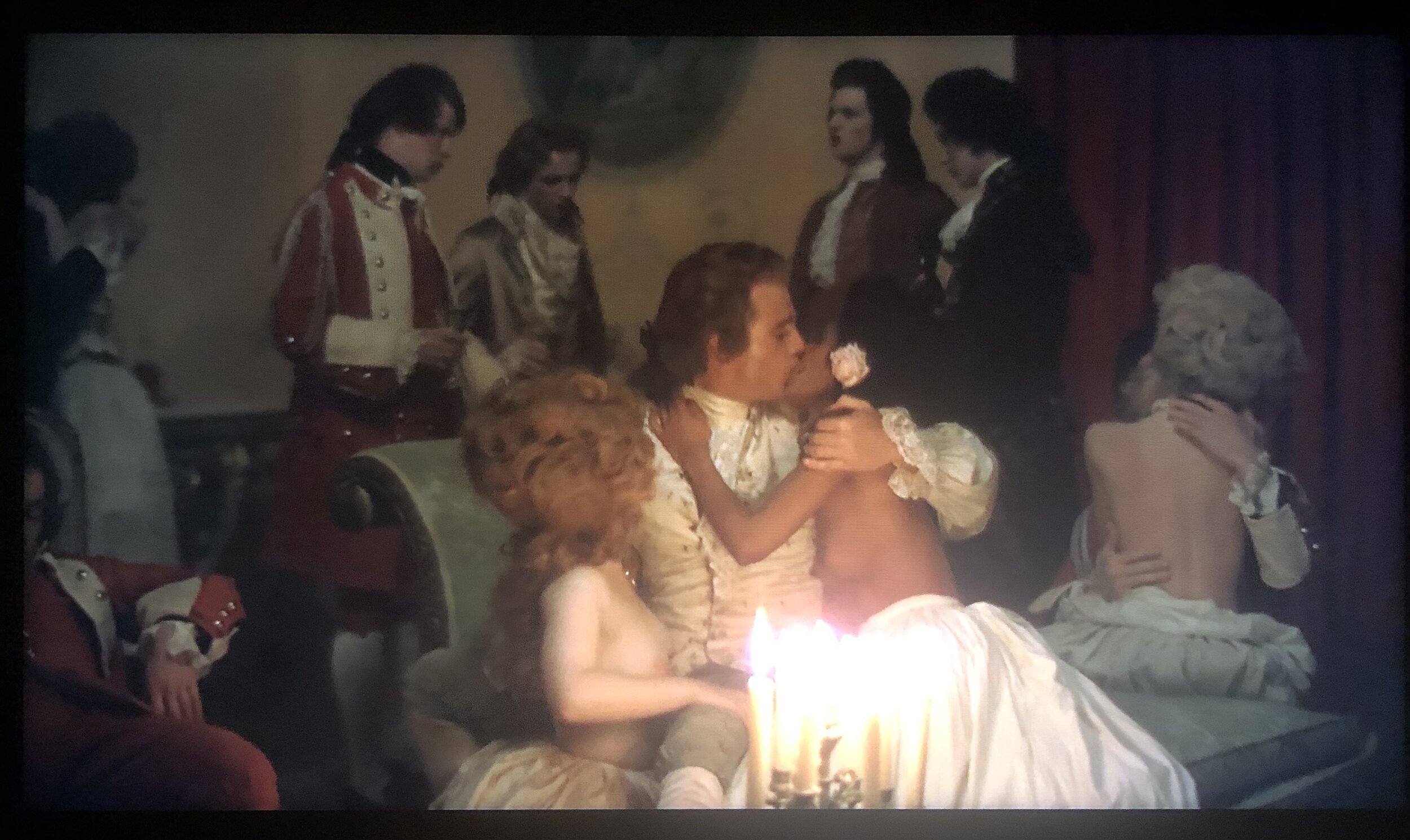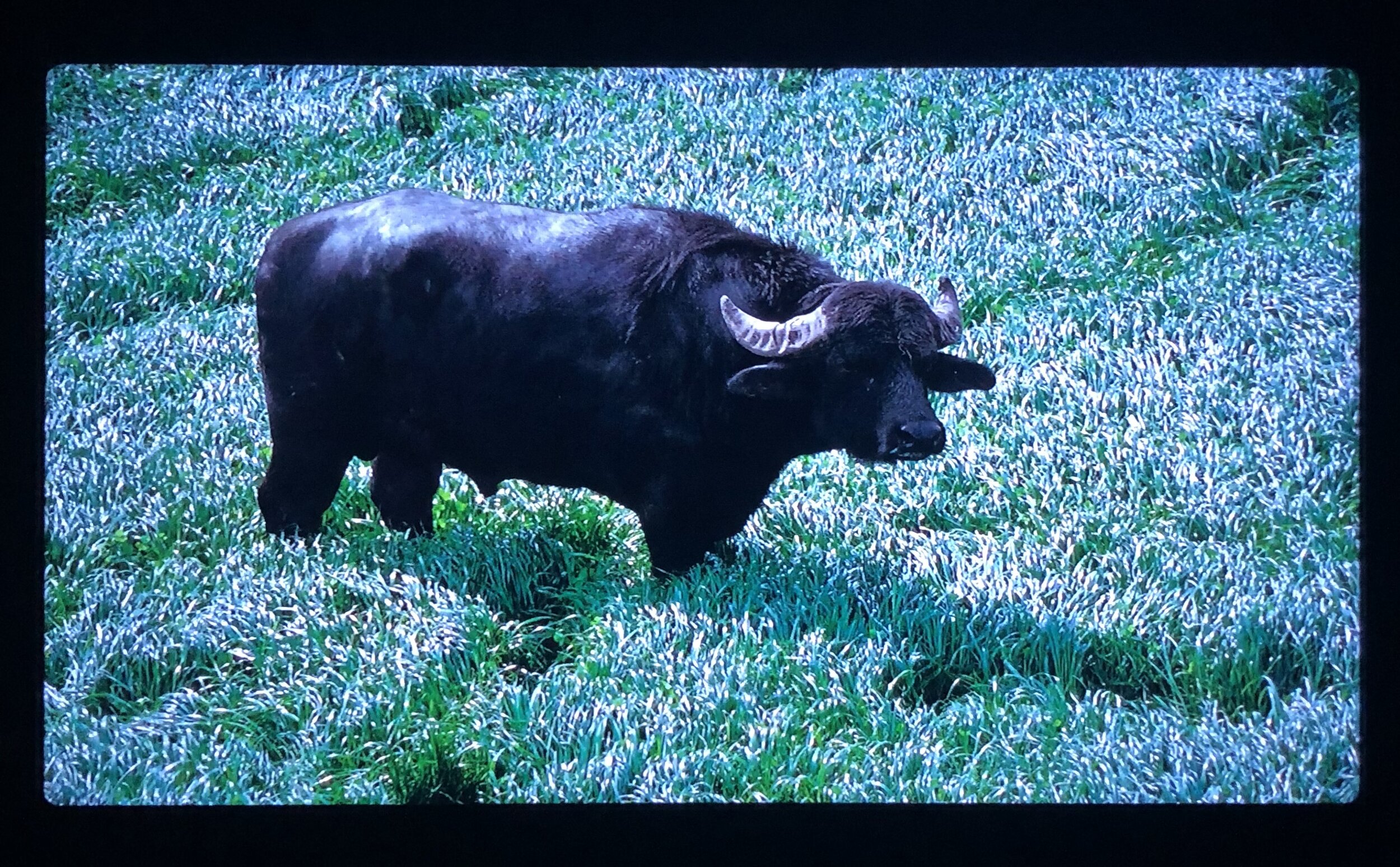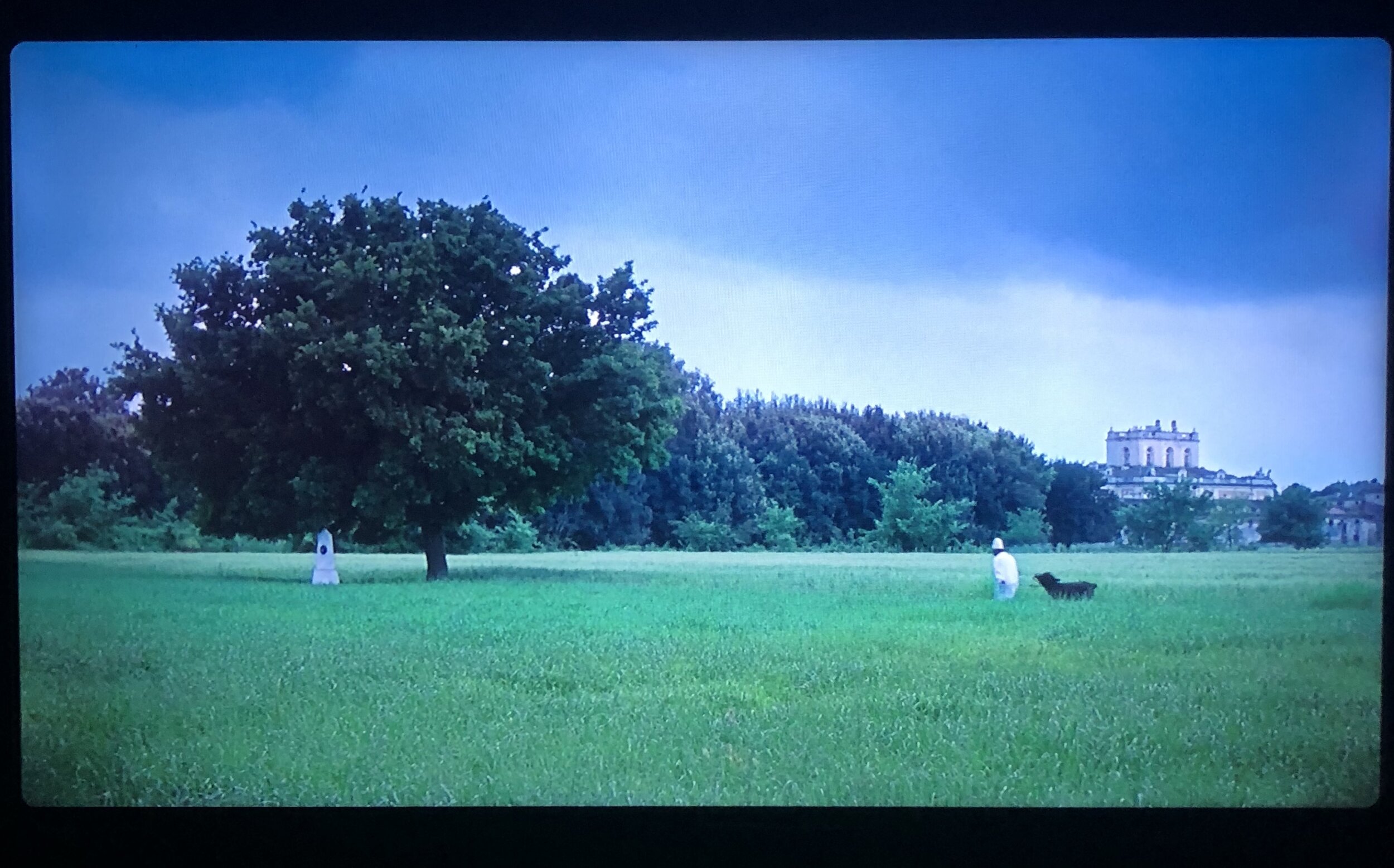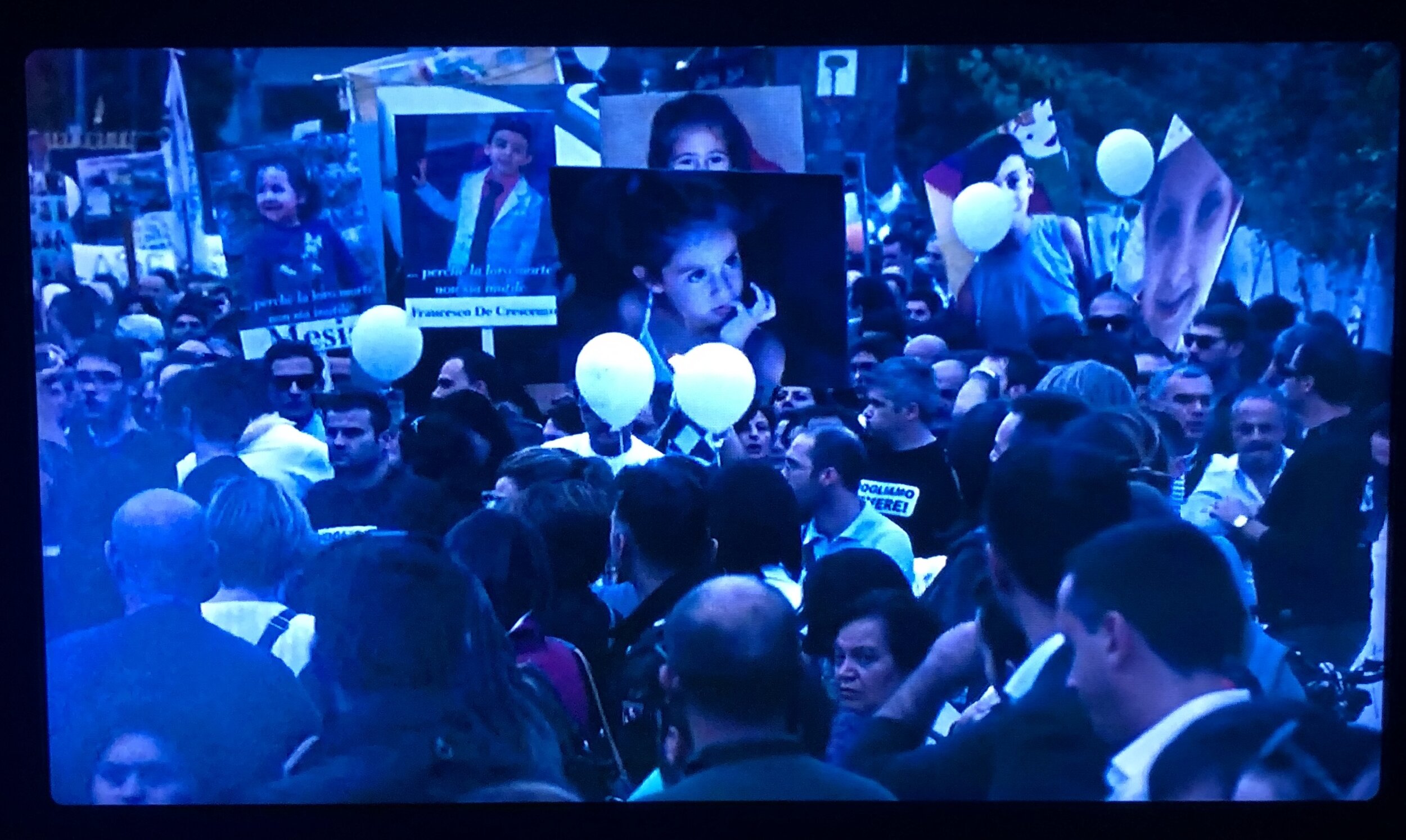From "Human Archipelago" (2018)
With a lamp in the blaze of daylight I seek out the work of God in real time.
These far-fetched words unfurl into those who do the work of God in real time.
If I were another on the road I would do the work of God in real time.
In this age of noise and sorrow, what greater privilege than to do the work of God in real time?
The horse waits but the rider is nowhere to be found. Who then shall do the work of God in real time?
Many are the godless, my friends, many are the disregarded who do the work of God in real time.
My memory is lit by remembered lightning: a ghazal to the work of God in real time.
- Teju Cole
From the book HUMAN ARCHIPELAGO, his collaboration with photographer Fazal Sheikh (https://steidl.de/Books/Human-Archipelago-0613454851.html)
Barcelona: Implication
The Constellations are a harmoniously composed series of 23 gouaches that Miró painted to escape the trauma of the war years.
— The Joan Miró Foundation
We’ve all gouached.
Haven’t we? Pollock lashed
stretched canvas that was Nude.
Was said to call his Ruth prude
and he spat chew in a coffee can
and shat bloodily in the can.
When I was twenty I spent three
hours in a room with the Free-
Spirited Types moving from
one inviting orifice to the welcome
of another. I was lost in my wood,
savage and stern. But also I understood
that when it was later and I was wiser
I could never forgive Herr Pfizer.
My father said we’ve all got an East River.
He had a tenuous web of veins for a liver.
His loss. Literally. Mom’s impatient art
was proved to be the most effective part
of her mothering: you should see her rich greens
well up in the power of the middle and grow lean
as they colonize the crusted edges.
My love for her is impregnable.
Pity Miró, moonblind, weary on the rocky coast
of Portugal, walking cliff paths and getting lost.
His quest for childish wonder has bent him
and riddled his skin before its time.
Put this together with that! Paint it yellow!
Murk the sky with banks of Periwinkle and Snow.
Gouache a widened eye low on the right,
so it can behold the left and the night.
- Noah Warren
Journey of the Magi
‘A cold coming we had of it,
Just the worst time of the year
For a journey, and such a long journey:
The ways deep and the weather sharp,
The very dead of winter.’
And the camels galled, sorefooted, refractory,
Lying down in the melting snow.
There were times we regretted
The summer palaces on slopes, the terraces,
And the silken girls bringing sherbet.
Then the camel men cursing and grumbling and running away, and wanting their liquor and women
And the night-fires going out, and the lack of shelters,
And the cities hostile and the towns unfriendly
And the villages dirty and charging high prices:
A hard time we had of it.
At the end we preferred to travel all night,
Sleeping in snatches,
With the voices singing in our ears, saying
That this was all folly.
Then at dawn we came down to a temperate valley,
Wet, below the snow line, smelling of vegetation;
With a running stream and a water-mill beating the darkness,
And three trees on the low sky,
And an old white horse galloped away in the meadow.
Then we came to a tavern with vine-leaves over the lintel,
Six hands at an open door dicing for pieces of silver,
And feet kicking the empty wine-skins.
But there was no information, and so we continued
And arrived at evening, not a moment too soon
Finding the place; it was (you might say) satisfactory.
All this was a long time ago, I remember,
And I would do it again, but set down
This set down
This: were we led all that way for
Birth or Death? There was a Birth, certainly,
We had evidence and no doubt.
I had seen birth and death,
But had thought they were different; this Birth was
Hard and bitter agony for us, like Death, our death.
We returned to our places, these Kingdoms,
But no longer at ease here, in the old dispensation,
With an alien people clutching their gods.
I should be glad of another death.
- T.S. Eliot
Bruce Herman - "Second Adam" (Detail)
Bruce Herman - "Miriam, Virgin Mother"
The Feast of Saint John (c. 1875) - Jules-Adolphe-Aimé-Louis Breton
Orchestrated Moan
Pills dangle from every mouth at the opera house while I tell myself
to get out of the way, get out of the aisle, get out of my
own mind. I know the composers have sex, the orchestra, everyone up there.
I know by the disintegrating formula
in the smallest echo of vibrato, soprano an antonym of stutter,
no place safer than another.
Look, these performers have lost their heads, shrive
with patented mechanical instruments
only living when handled by a human being.
I am terrible in first person, a less-successful ornament
next to the hands of a woman pulling her mouth
open wide as advertisement.
She belts the Italian for “half the trouble you get into
comes from coming,” our drug’s half-life, our wide-set pupils,
our performances, our aural and erotic poisons.
Goodbye powerful scales, I have been experimenting with tenderness
and I seem to have forgotten
what I wanted this poem to consist of,
love?
- Jessica Scicchitano
Richter's Windows in Tholey Abbey
Adolph von Menzel - "Procession in Hofgastein" (1880)
The Meteor
Blackout. Above me the sky shone a pale, clear blue.
No one was there, no one near— except you,
faraway Rio Salto, who flowed past my home.
I didn’t hear you. All I heard was your road crew
of frogs, out announcing the water and always
more water to pulp mills and farms.
I thought of the past. I recalled how,
at twenty, still fearful of life, I felt I’d die too
in some blood-spattered way. And alone,
late at night, I would come to this path
where my enemy might lie in wait in the dark.
I walked slowly, so slowly, my heart
in my throat while I feigned perfect calm
so he would see I was brave (though
I’d startle at wind, or a firefly’s spark):
slowly, I crept, and my heart leapt ahead.
And what then? A crash—laid out flat
on the path, I’d be gasping, alone . . .
but not alone. The graveyard is near.
Memorial lamps dimly kindling stones.
My mother would come, a hand
brushing my skin, and I’d feel her tears
on my wound like cool dew in the dark.
The others, too, will draw nearer
and gather me up from the path
and with faint cries, they’ll carry me off
to their land, and they’ll care for me
there—where you smile unending
above your sloped pallet now padded
with mosses and grass, like a nest.
And musing I heard (beyond grapevines
and next to the edge of a ditch, by an elm)
a rough hiss, and a flash, a blast . . . blasting
open, and glowing, and falling, fallen
from the infinite flicker of stars:
a globe of gold that dove mutely toward fields
as if diving toward empty layers of mist,
itself empty as mist—and inside
its instant, it lit all the hedges
and trenches and huts, and clusters
of forest, and night-drifting rivers
and the white, towered towns in the distance.
Enraptured, I asked: Did you see?
But there was only the sky, high and serene.
Not the sound of a step, or silhouette.
The sky, nothing more: dark sky,
surging with huge stars; a sky in which
it seemed the world had been submerged.
And I felt the earth inside the universe.
Shaking, I felt earth as part of the sky. And saw
myself down here, bewildered and small,
wandering on a star among stars.
- Giovanni Pascoli, trans. from Italian by Taije Silverman
Aubade
From the last stars to sunrise the world is dark and enduring
and emptiness has its place.
Then, to wake each day to the world's unwavering
limits, you have to think about passion differently, again.
Don't we forgive everything of a lover
if we are the motive,
if love promises to take us to many places, to even larger themes?
Faithlessness is a heart glancing down
a plumed avenue
in which one is serenaded by myriad, scattering birds.
Thunder in the air begins opening appetites;
everyone is being true to themselves, they think—
And then it is having your right arm sheared off,
and the whole world gets to touch you, chime your losses.
I turn to my imagination, but its eyes are still
green, as if from
too much looking on at equatorial gardens.
Still, if I were you I would linger here,
deepen in the rottenness,
learn something about the world, about the desire for safety.
Then, I'd make an instrument from the ruins,
something awfully beautiful.
I would sit down to eat as if I were reading a poem.
I would observe how the night went into the day with a special grandeur.
It could be like swallowing a sword and growing surprised
by how good it is, how it opens.
And then maybe to sing out with a throat like that—
saying look, look how the world has touched me.
- Sandra Lim
The Last Mowing
There’s a place called Far-away Meadow
We never shall mow in again,
Or such is the talk at the farmhouse:
The meadow is finished with men.
Then now is the chance for the flowers
That can’t stand mowers and plowers.
It must be now, though, in season
Before the not mowing brings trees on,
Before trees, seeing the opening,
March into a shadowy claim.
The trees are all I’m afraid of;
That flowers can’t bloom in the shade of;
It's more men I’m afraid of;
The meadow is done with the tame.
The place for the moment is ours
For you, oh tumultuous flowers,
To go to waste and go wild in,
All shapes and colors of flowers,
I needn’t call you by name.
- Robert Frost
From Stanley Kubrick's "Barry Lyndon" (1975)
November 7th, 2020
From Henri Cole's poem, "To a Bat"
“…Where are you going now,
Mr. Bat?
Can you see
your brothers and sisters
fluttering over the treetops?
Can you see
the world is crammed,
corrupt, infuriating,
shallow, sanctimonious,
and insincere?
Thank you for afflicting
my life…”
- Henri Cole, from his collection BLIZZARD (2020)
Simeon Solomon (1840 - 1905) - "The Ascension"
From Bellini's La Sonnambula - "Osservate! L'uscio è aperto"
Four from Pietro Marcello's "Lost and Beautiful" (2016)
“That night I dreamt
that all humans
had become winged creatures,
and they had flown far away…”









